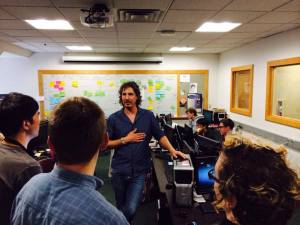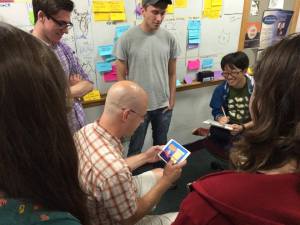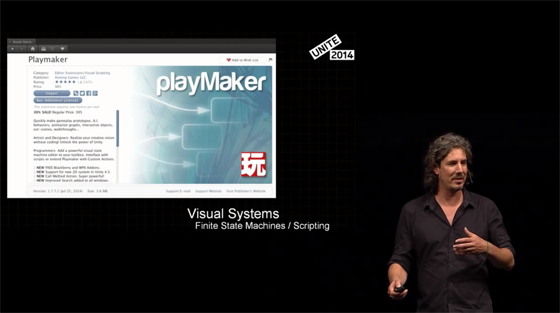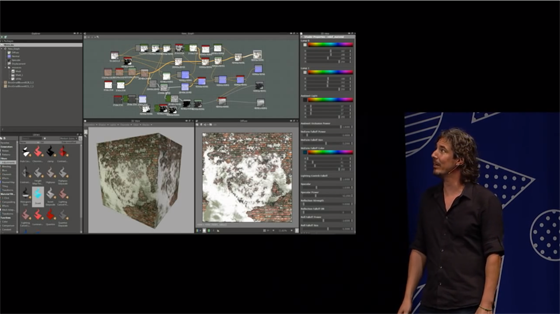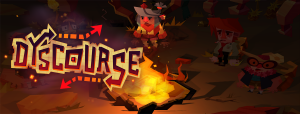Three IGC titles featured in Humble Bundles
The IGC is well-represented this week in the Humble Bundle, with three games across two of the current bundles! Pay what you want while supporting charities like the Maker Education Initiative, Worldreader, the Mozilla Foundation and CodeNow.
The Humble Mozilla Bundle includes nine big name indie titles that can be played right in the browser. This bundle includes two IGC titles:
AaaaaAAaaaAAAaaAAAAaAAAAA!!! for the Awesome
Aaaaa! took place in an alternate 2011, where BASE jumpers leapt from the skies and executed stunts around the floating buildings of Upper Boston. This semi-sequel picks up six years later — the sport’s been outlawed, and you’re jumping as a form of protest. High in Earth’s stratosphere, you’ll thread a path through the rotating blades of enormous wind turbines. Elsewhere in the solar system, you’ll dodge asteroids above seas of lava, spray graffiti onto lunar government offices, and flip off Ganymede colonists — all in the name of peaceful protest.
Jack Lumber
A tree killed his granny and now he is out for revenge. Meet Jack Lumber, the supernatural lumberjack who hates trees, loves animals, and hates trees. Did we say that twice? The guy really hates trees, and boy does he have an axe to grind.
Use the supernatural powers of Jack Lumber to massacre the forest in this time-warping, line-drawing, log-slicing, pun-filled lumberjacking mashup! Bust out your flannel to muster the strength and burliness to solve the skill and logic puzzles (flannel not actually required).

The “Get Your Learn On” Humble Weekly Bundle is all about the power of knowledge and features seven fun educational games. This bundle includes one IGC title:
The Counting Kingdom
Get ready for magic, monsters, and math with The Counting Kingdom!
From writing simple spells to brewing bubbly potions, yesterday was just another day in your life as the Wizard’s Apprentice. Today, a horde of angry monsters is attacking The Counting Kingdom, and only you can defend the castle towers! Using your spells, potions, and the mighty power of mathematics, you must banish the monsters and save the kingdom!
Take up your tome of spells and save the castle in this tactical puzzler, featuring strategic tower defense gameplay across an expansive world map.




